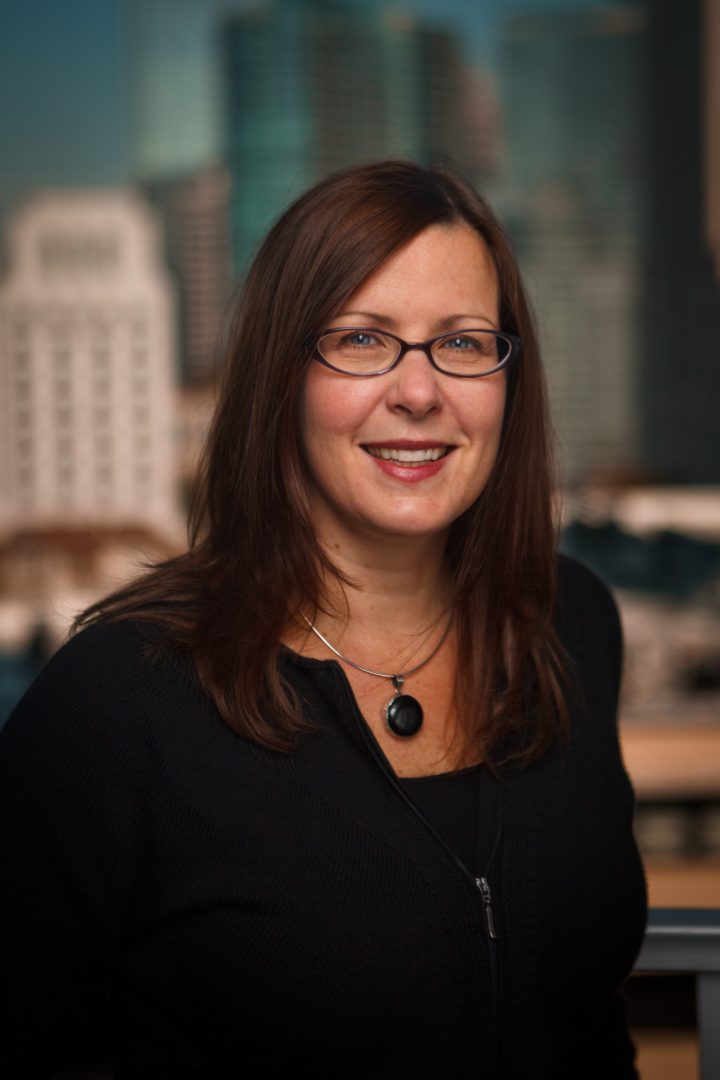It’s a dream that began at the age of nine, when Kathryn Petralia was playing with a TRS-80 her parents gave her. The computer inspired a deep interest in technology at an early age. She took that passion and thought – why not apply it to lending?
But the road to business didn’t start immediately and it didn’t come easy. Petralia, who is the Co-Founder of Kabbage spent 15 years working with big and small companies on credit and e-commerce before starting her own company in the mid 90’s. Her adventure into entrepreneurship even included camping her way down the west coast and a little poo.
Petralia opens up about her entrepreneurial journey, the lessons she’s learned along the way – and how her company can help you get quick access to cash for your business.
You’ll also learn the three things you need to create a cushion of capital and three marketing strategies to apply to your business today.
HER Magazine: Your parents gave you a TRS-80 computer game at age 9 …what intrigued you about it? and how has it shaped who’ve you become today?
Kathryn Petralia: Two of my four parents were professors and were always working with computers, so it just seemed like something I should know how to do myself. There were only two programs on the machine – a typing program and a mystery game. So I learned how to type, which has been incredibly useful over the years, and how to find hidden treasures in ancient pyramids. I still need to get to Egypt to see if I’ve retained that skill.
HER: Money is a tough topic, especially for women. A new study recently released reveals more women lose sleep over money than men. Does that surprise you?
KP: This doesn’t surprise me – women are responsible for more household spending than men overall, so it makes sense that they worry about money more than men.
HER: One of the biggest challenges for an entrepreneur is funding. How does Kabbage bridge that gap?
KP: One of the hardest parts about getting funding as an SMB is going through the loan application process. It can be very time consuming, not to mention complex and confusing. We make it easy by doing the hard work for our customers; in fewer than 10 minutes, most of our customers complete the application and have access to capital. Our lines of credit allow customers to borrow what they need when they need it, and they never pay for funds they don’t need to borrow.
HER: You talk about leveraging technology to reexamine lending …what makes Kabbage unique when it comes to the lending process?
KP: Allowing our customers to give us direct access to the data they use to run their businesses makes the process much more streamlined. We can quickly assess business performance and revenue and allow our customers to get back to running their businesses. The persistent access we have to this data also enables us to provide a unique product – a line of credit that is flexible to meet the needs of growing businesses.
HER: Who is your service for? Who is your ‘average’ client?
KP: The idea for Kabbage was originally intended to provide capital to online businesses, particularly those selling on eBay, which meant retail businesses. We have continuously expanded our customer base over the years and now serve all types of businesses, both online and offline. Today somewhere between 15 and 20% of our customers are e-commerce businesses, and the rest represents all walks of businesses, including professional services, medical practices, spas/salons, retail, restaurants, construction and about any other type of business you can imagine. Our average business customer generates hundreds of thousands a year in revenue, but our lines of credit range from $5,000 to $100,000, so we can serve a wide variety of customers.
HER: What’s the average business loan at Kabbage?
KP: Our average customer qualifies for a line of credit of around $25,000 and borrows around $7,000 five times a year. Again, this is just an average; every customer is unique.
HER: The connotation around loans can be negative sometimes – how does Kabbage navigate that narrative?
KP: It hasn’t been our experience that small business borrowing has a negative connotation; most customers know that access to capital is important for a growing business. Our customers view capital as a revenue-generating asset, and they use it responsibly for that purpose. Our goal is to democratize access to capital and create transparency in an industry that can be very complicated.
HER: HER Magazine loves to focus on the entrepreneurial journey – you talk about camping your way down the west coast to launch a commerce startup in the mid-90s …we want to hear more about this! What gave you the drive to do this?
KP: I wish I could say I gave the process a lot of forethought, but the fact was I had meetings on the west coast, camping equipment and a limited budget, so it just made sense. The best part was the drive down the coast from Seattle to San Francisco…though I think I destroyed the brakes on my rental car. It also resulted in a few deals for my startup, so it was definitely a successful journey.
Read the full interview with Kathryn Petralia, inside of HER Magazine where she dishes helpful tips on marketing. Access February’s issue by downloading our magazine in iTunes or Google Play.








